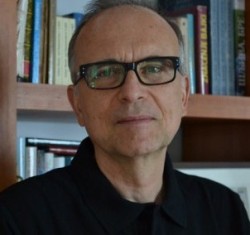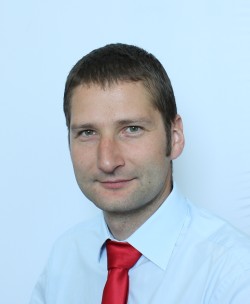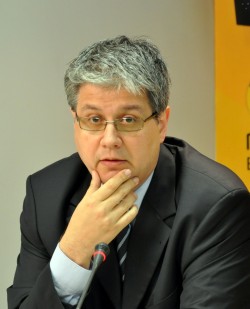Session 5: Rethinking Energy Security: Balancing Concerns, Managing Expectations
(GLOBSEC Debate in partnership with the Slovak Atlantic Commission)
The issue of international energy security is one of the top political issues at the moment in the whole of Europe. The current situation with energy and South Stream is on the agenda again, and a range of political, economic and geo-strategic issues define the complex power relations between the EU and Russia. These relations were never problem free, however all the actors involved need to work towards future developments and improvements in these relations. On the other hand, the political situation and relations in the region are very complex, especially due to the conflict in Ukraine. New actors that also want to play an active role have appeared on this scene in recent years: the USA and Central Asian countries.
Gas crises have arisen amidst rising fears of resource nationalism among energy exporters, and within the context of rising oil prices. A major concern has been Europe’s economic vulnerability to political pressure from energy exporters and to strategic competition. Today, supply-related fears appear to be more salient.
The EU policy response to the gas crises over the last decade has reinforced the drive to make gas markets more open by questioning anticompetitive clauses in long-term supply contracts signed with outside energy suppliers, launching antitrust cases against energy utilities (including numerous EU companies and a landmark case against Gazprom), setting standards and obligations for supply security (e.g. obligations to hold reserves) and promoting greater interconnectivity among isolated national markets in the new Central and Eastern European member states through pipeline ‘reverse flows’ and interconnector pipelines.
Achieving this security requires efforts to reduce the risks to energy systems, both internal and external, and to build resilience in order to manage the risks that remain. Tools to achieve this include: ensuring markets function so that the forces of demand and supply correspond; developing adequate production and transport infrastructure; expanding risk management systems (reserves, emergency planning and alternative supply routes); maintaining a diversified portfolio of energy suppliers; and keeping demand under control (energy efficiency). But energy security considerations must also be balanced against competitiveness and environmental concerns – notably those related to climate change.
As the power balance shifts between importers and exporters, and countries struggle to develop more sustainable energy systems, it is likely that volatility and uncertainty will define global energy markets in the coming decade.
Discussion Topics:
- What would be the key challenge for Europe in the management of relations with the region?
- What potential approaches might Europe take to diversify its sources of natural gas? What is Russia’s role in Europe’s natural gas policies, and what are the key factors that could hinder efforts to develop alternative suppliers of natural gas?
- How does the dispute between the EU and Russia affect the countries of South Stream and what are their options?
- Can energy market liberalization in the EU, breaking monopolies in particular, and be reconciled with the objective of ensuring supply security in competition for resources on a global market?
- How are these new challenges actually affecting national governments’ ability to meet the 20-20-20 goals?
- Is there a strategic political agenda that favors renewable energy and energy efficiency?
- Does the capability of Governments to guarantee investments impact renewable energy and how does it affect conventional investments?
Speakers:
Aleksandar Kovačević‚ Senior Visiting Research Fellow, Oxford Institute Energy Studies
Julian Popov‚ Fellow, European Climate Foundation
Rovshan Ibrahimov‚ Head of Foreign Policy Analysis Department, Center for Strategic Studies, Azerbaijan
Oliver Joachim Rolofs‚ Press Spokesperson and Head of Communications, Munich Security Conference
Michal Briatka‚ Commerce and Contracting Specialist, Commercial and Regulatory Affairs, Eustream, Slovakia
Dušan Reljić‚ Head of Office, German Institute for International and Security Affairs (SWP) Brussels (Moderator)






